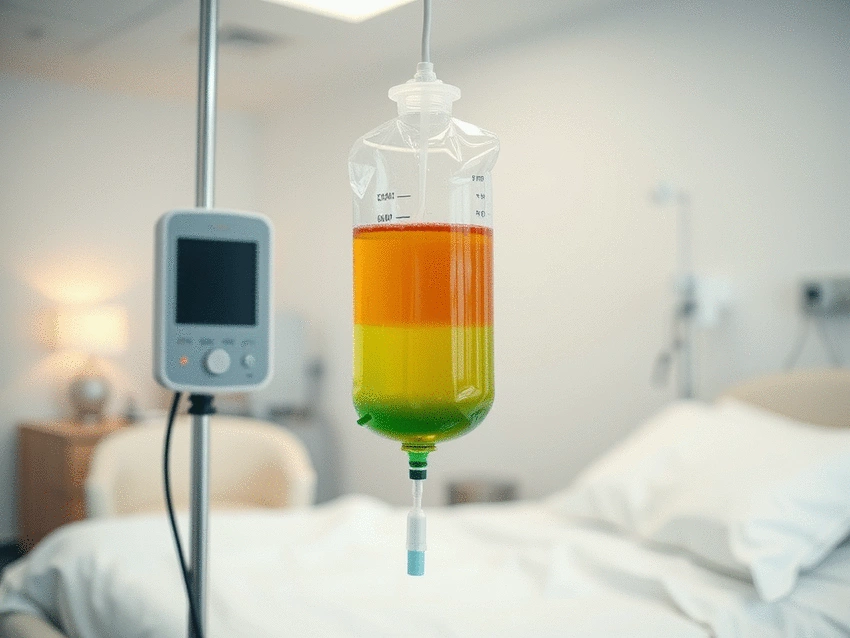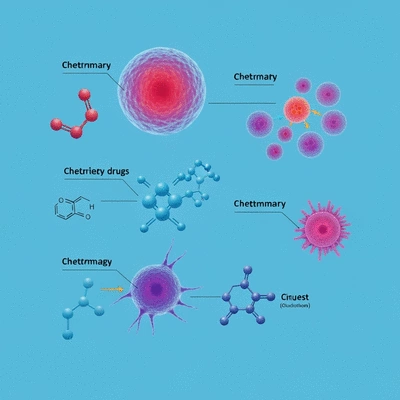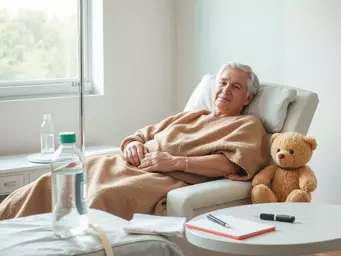Support Resources During Chemotherapy
By Dr. Elise Carter / Jan 28
As you embark on your chemotherapy journey, understanding the treatment process can empower you to take an active role in your care. Did you know that the types of chemotherapeutic agents vary significantly in how they function? Knowing this can make a world of difference.
This visual outlines the key administration methods for chemotherapy, highlighting their characteristics and what to expect during treatment sessions, along with dosage considerations.
Chemotherapy is a treatment that uses powerful drugs to fight cancer. Its primary purpose is to destroy cancer cells, stop their growth, or prevent them from spreading to other parts of the body. The way chemotherapy works is by targeting rapidly dividing cells, a characteristic of cancer cells. However, it can also affect other fast-growing cells in the body, which is why understanding this treatment is crucial for patients, as detailed by the National Cancer Institute's guide on chemotherapy.
At Types of Chemotherapy, we believe that knowledge is a key part of empowering patients. When you understand how chemotherapy operates, you take an important step in navigating your treatment journey with confidence.
Chemotherapy is often viewed as a one-size-fits-all solution, but it encompasses a variety of drugs that work in different ways. Some drugs, for example, directly kill cancer cells, while others interfere with their ability to grow or divide. This multifaceted approach helps oncologists tailor treatments to specific cancer types and stages. The National Cancer Institute provides a comprehensive overview of the different types of chemotherapy and their mechanisms.
Understanding these mechanisms can help you feel more in control during your treatment. Have you considered how these drugs might fit into your overall treatment plan?
Chemotherapy plays a vital role in various stages of cancer treatment. Depending on the diagnosis, it can be used as a primary treatment, alongside surgery, or as an adjuvant therapy following surgery to eliminate any remaining cancer cells. Each approach is designed to enhance your chances of recovery, as explained by the American Cancer Society's information on chemotherapy treatment plans.
These strategies emphasize the importance of working closely with your healthcare team to determine the best approach for your specific situation. Have you discussed your treatment plan with your oncologist yet?
There are several different classes of chemotherapeutic agents, each designed to target cancer cells in unique ways. Knowing which types are part of your treatment can help you understand what to expect.
By recognizing these different types, you can better appreciate the thought that goes into selecting your chemotherapy regimen. Have you ever wondered how your specific drug choice was made?
Chemotherapy can be administered in several ways, each with its own advantages and disadvantages. The most common methods include intravenous (IV), oral, and injection therapies. Understanding these options is essential for preparing for your treatment.
Each method has unique considerations. For instance, while IV may allow for faster action, oral options can be easier for daily management. Have you thought about which method you might prefer?
During a typical chemotherapy session, several steps are involved, from preparation to aftercare. Understanding this process can ease some anxiety about what to expect.
Knowing these steps can help you feel more prepared and less anxious going into your sessions. Have you discussed what your first treatment day will look like with your oncologist?
Dosage and infusion rates in chemotherapy are crucial factors that influence treatment outcomes. Oncologists determine these based on various factors, including your type of cancer, overall health, and response to past treatments.
By maintaining an open dialogue with your healthcare team, you can ensure that your treatment plan is optimized for your unique situation. Have you had a chance to talk about your dosage with your oncologist?
Chemotherapy is a treatment that uses powerful drugs to destroy cancer cells, stop their growth, or prevent them from spreading. It works by targeting rapidly dividing cells, which is a characteristic of cancer cells.
Chemotherapy drugs include cytotoxic drugs (that directly kill cancer cells), targeted therapies (that focus on specific characteristics of cancer cells), and hormonal therapies (that block hormones promoting cancer growth).
Chemotherapy can be administered intravenously (IV) directly into the bloodstream, orally in pill form, or via injection into the muscle or under the skin.
During a chemotherapy session, you can expect preparation (assessments), administration of medication by your healthcare team, and aftercare (monitoring for immediate side effects).
Dosages and infusion rates are personalized based on factors such as your weight, height, type and stage of cancer, overall health, and how your body responds to treatment.
What has been your biggest concern regarding chemotherapy? Share your thoughts below:
Here is a quick recap of the important points discussed in the article:



 Support Resources During Chemotherapy
Did you know that support resources can significantly ease the journey through chemotherapy? Underst
Support Resources During Chemotherapy
Did you know that support resources can significantly ease the journey through chemotherapy? Underst
 Supporting Mental Health in Chemotherapy
When you think about cancer treatment, how often do you consider the emotional toll it takes on pati
Supporting Mental Health in Chemotherapy
When you think about cancer treatment, how often do you consider the emotional toll it takes on pati
 Chemotherapy's Impact on Relationships
Have you ever considered how a cancer diagnosis can reshape the relationships around you? The emotio
Chemotherapy's Impact on Relationships
Have you ever considered how a cancer diagnosis can reshape the relationships around you? The emotio